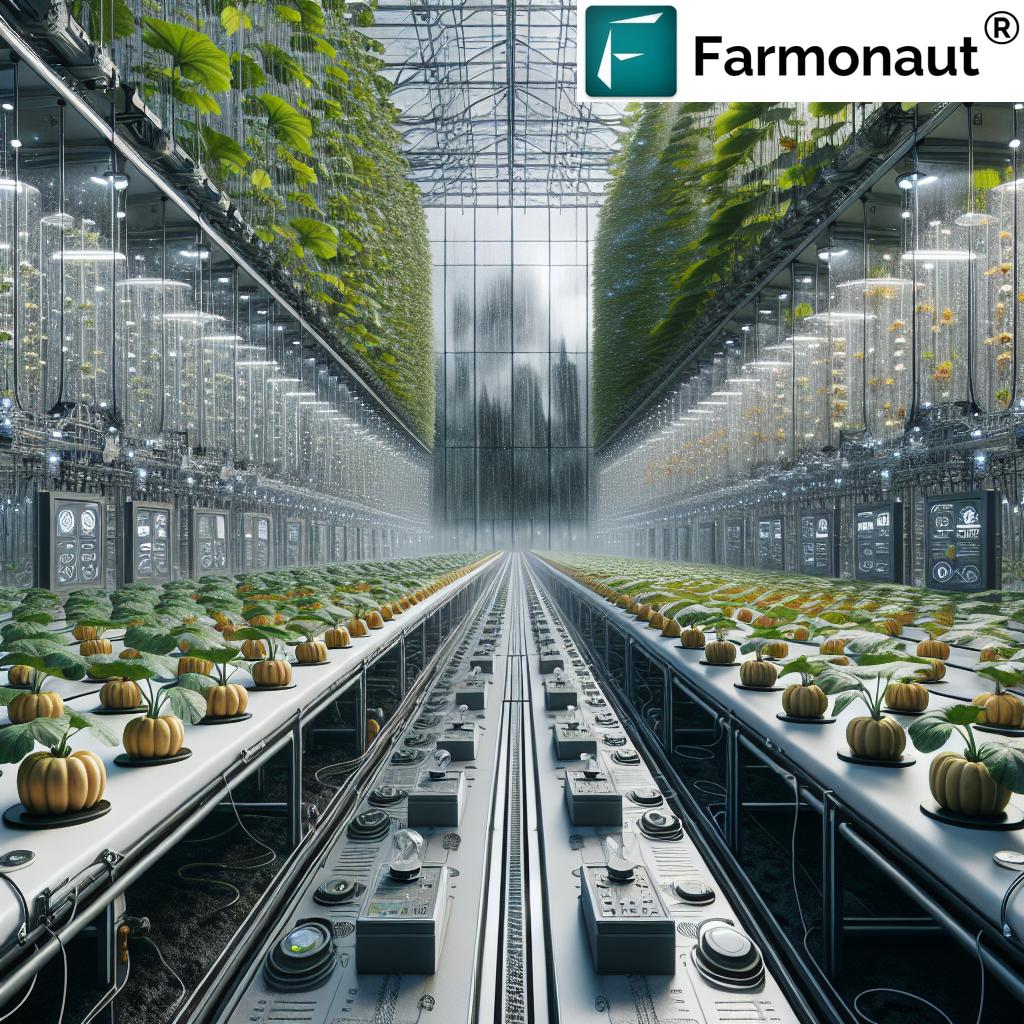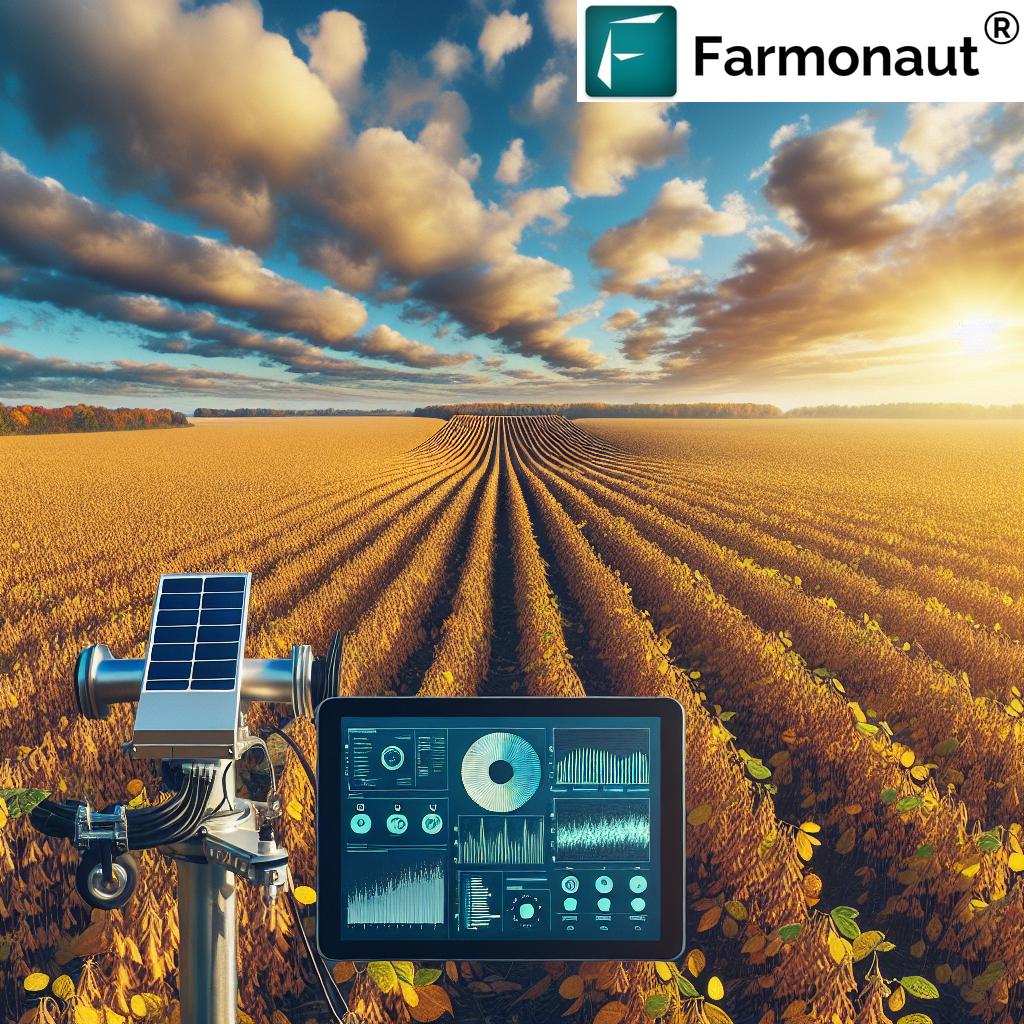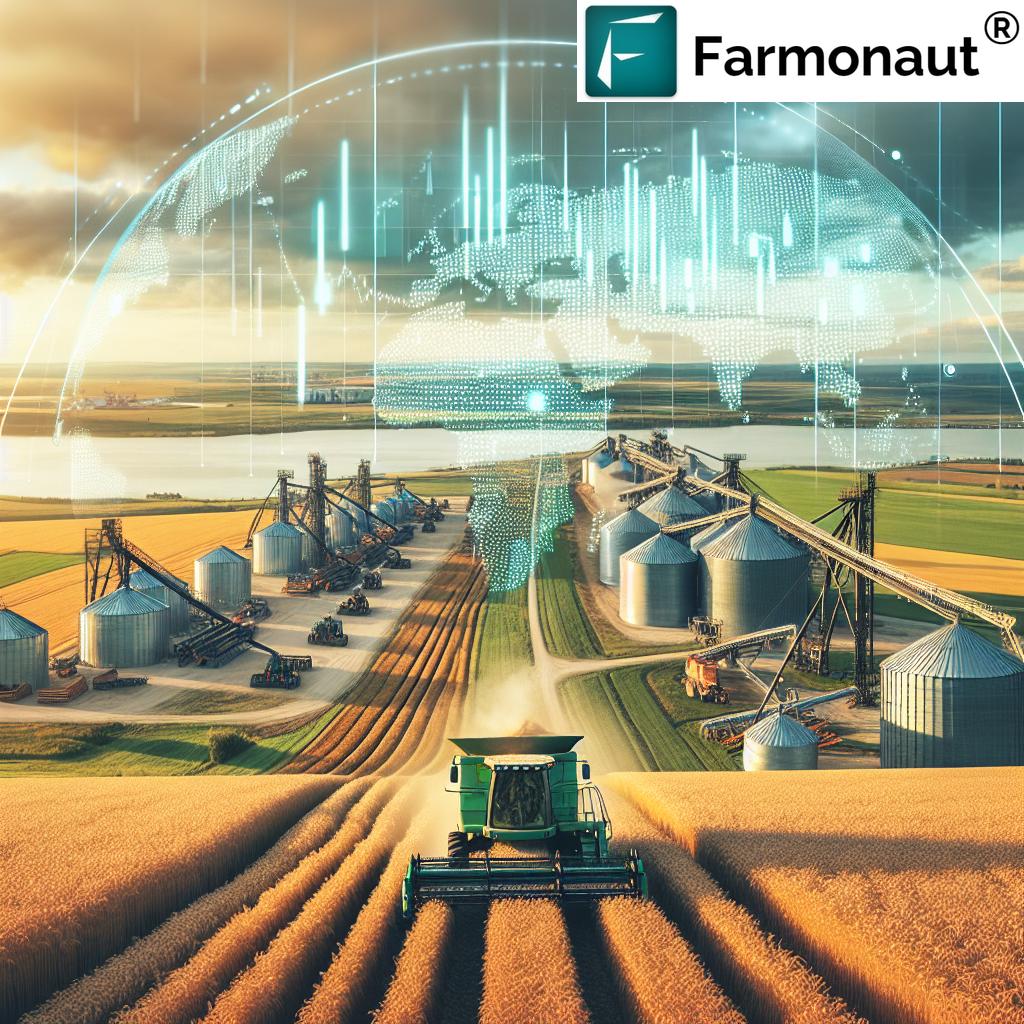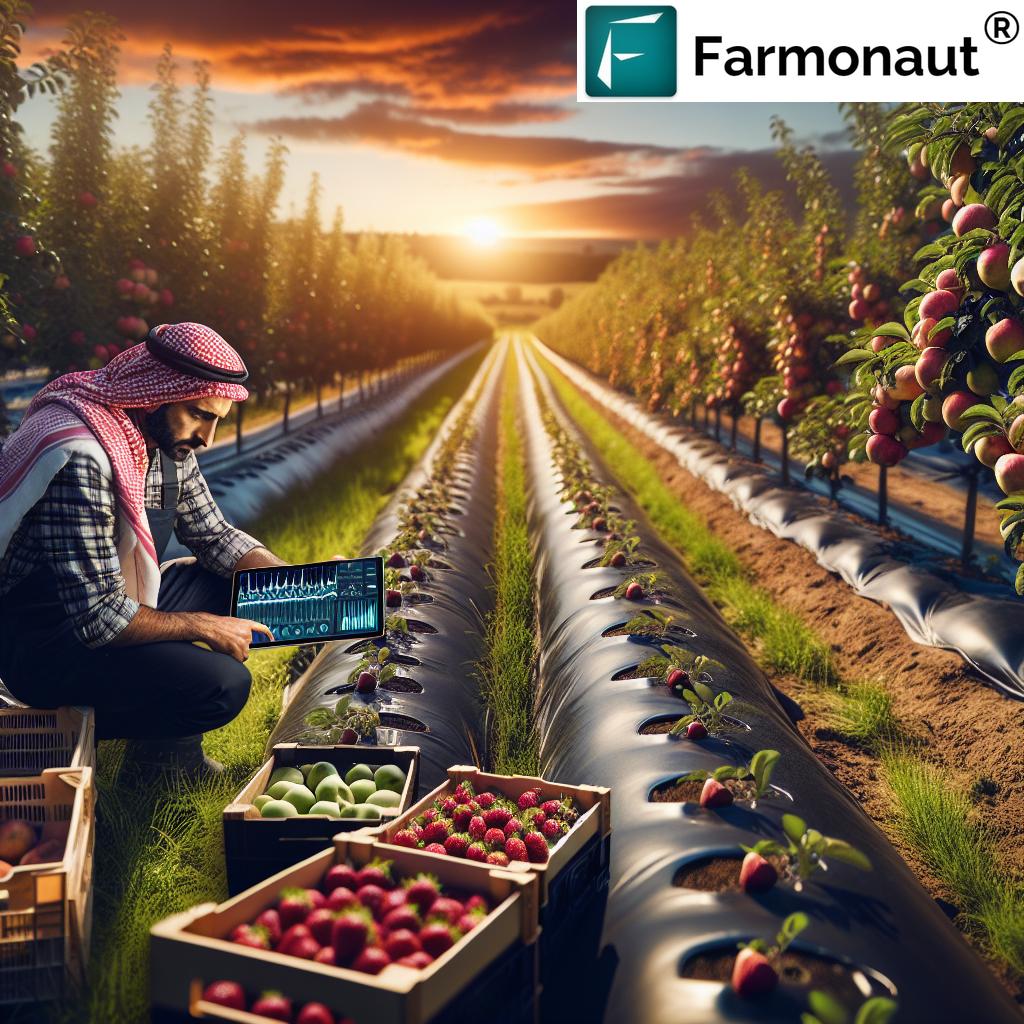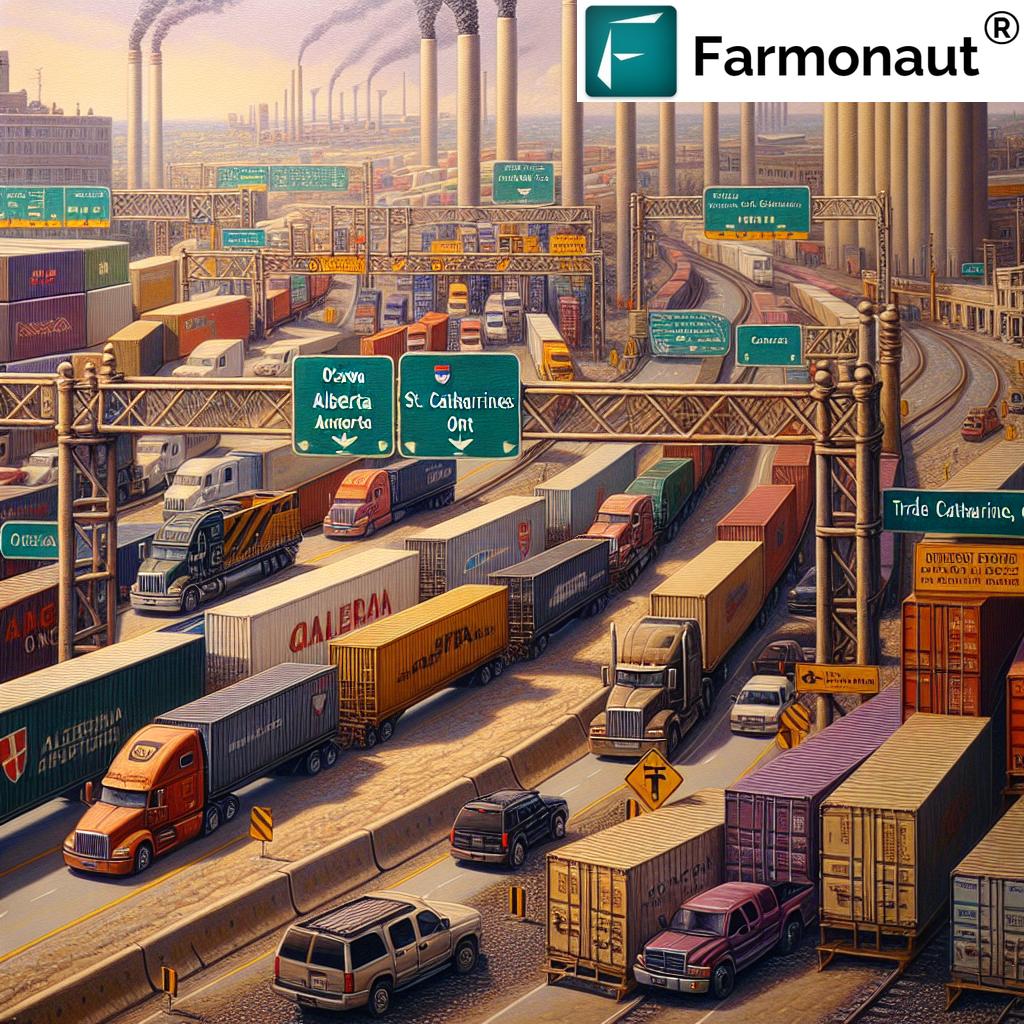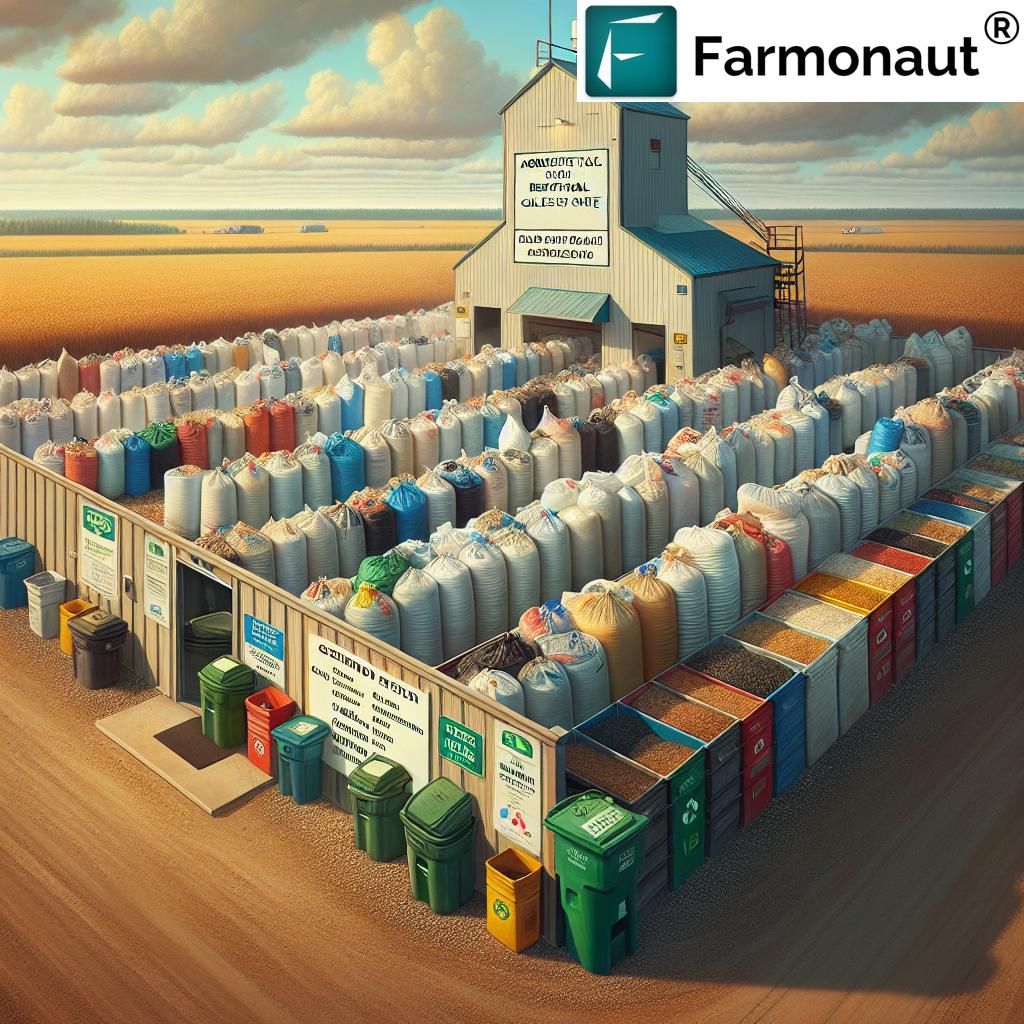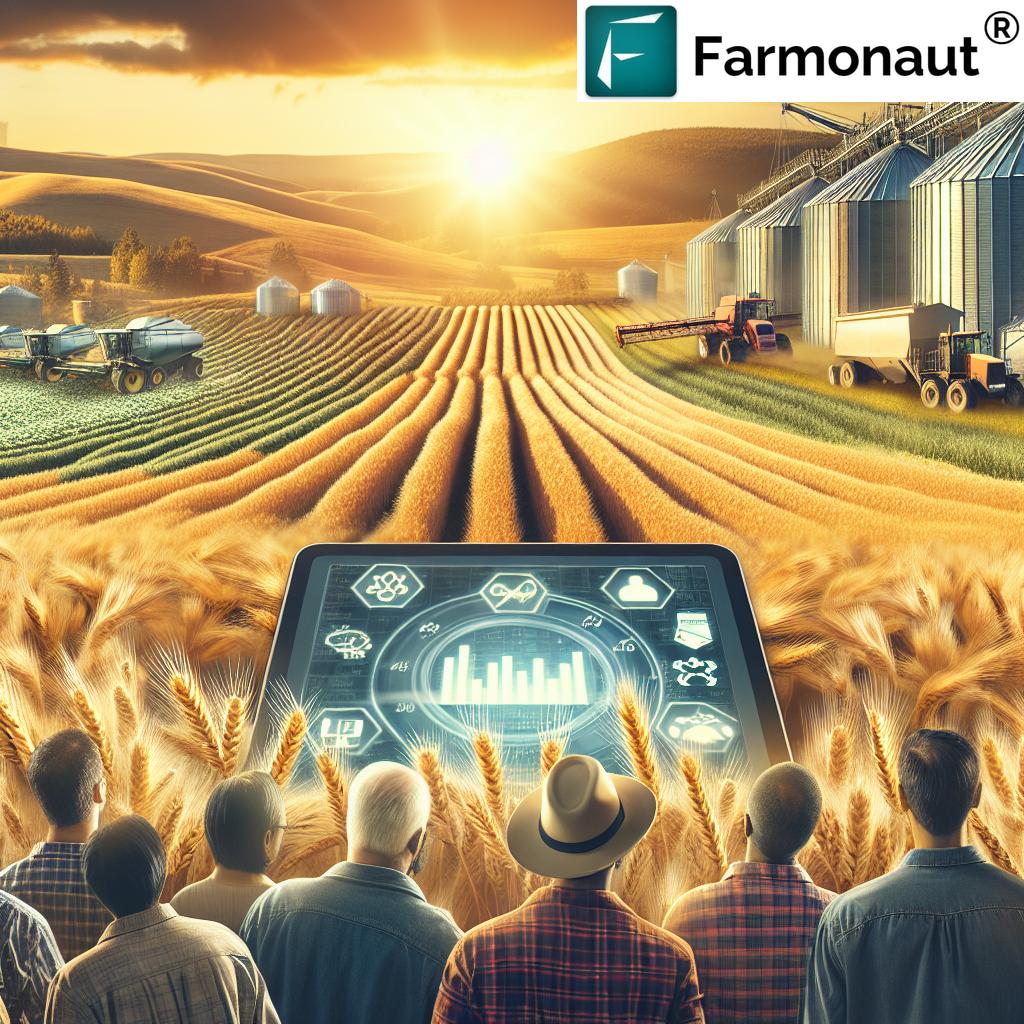2024 Ontario Vegetable Growers Face Climate Change and Global Competition: Innovative Solutions for Sustainable Growth
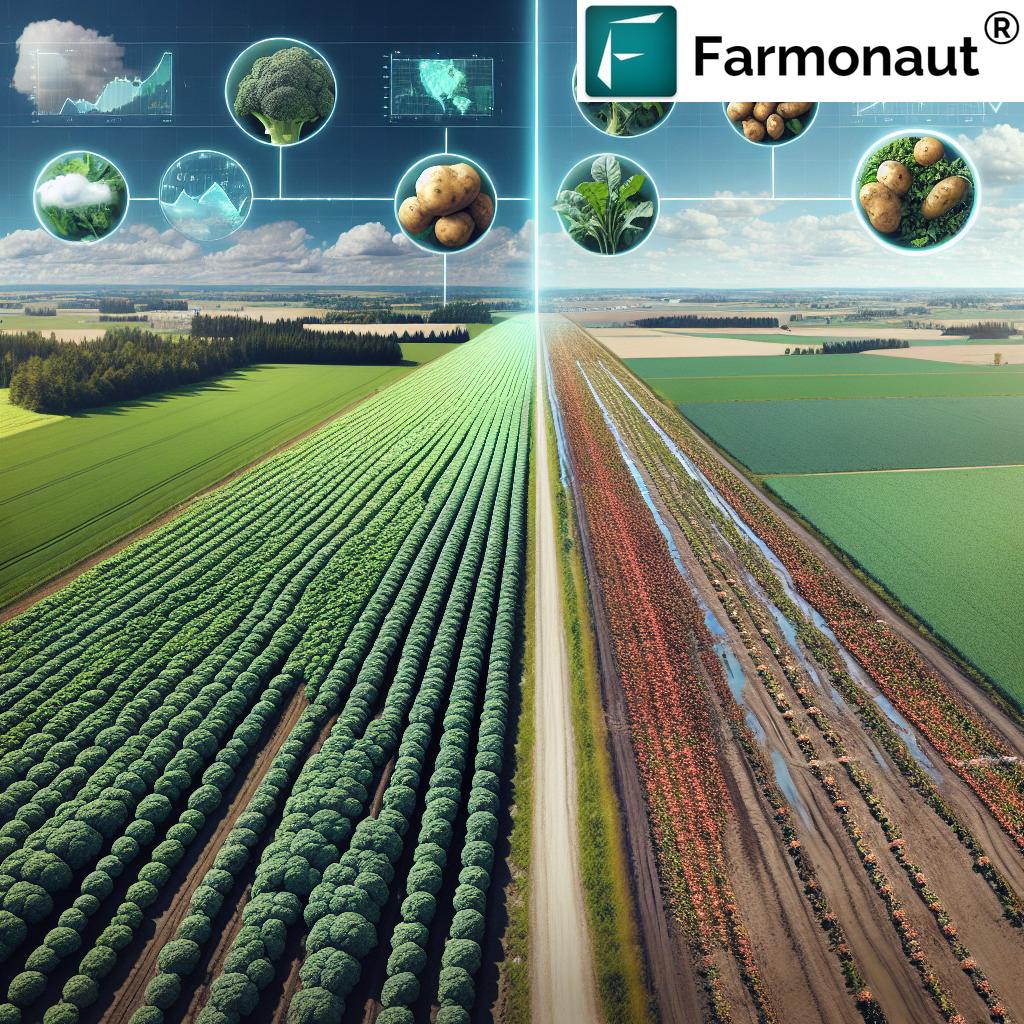
“In 2024, Ontario vegetable growers face dual challenges: climate change impacts and increased global competition, reshaping 100% of their operations.”
As we delve into the heart of 2024, Ontario’s vegetable growers find themselves at a critical juncture, facing unprecedented challenges that are reshaping the agricultural landscape. Climate change and global competition have emerged as formidable forces, compelling our industry to adapt and innovate at an unprecedented pace. In this comprehensive blog post, we’ll explore the pressing issues affecting crop production, from extreme weather impacting fruit trees to innovative technologies preserving fresh produce. We’ll also examine how the processing vegetable industry is adapting to these changes, with a focus on sustainable farming practices and agtech solutions for crop protection.
The Climate Change Conundrum
Climate change has become an undeniable reality for Ontario’s vegetable growers in 2024. The impact on agriculture is profound, with extreme weather events becoming increasingly common and unpredictable. From prolonged droughts to sudden frosts, our crops are under constant threat. Let’s break down some of the key challenges:
- Erratic Weather Patterns: Unseasonable temperatures and precipitation levels are disrupting traditional planting and harvesting schedules.
- Increased Pest Pressure: Warmer winters are allowing pests to survive and proliferate, leading to greater crop damage.
- Water Scarcity: Changing rainfall patterns and depleting groundwater resources are putting a strain on irrigation systems.
- Soil Degradation: Extreme weather events are accelerating soil erosion and reducing fertility.
These challenges are not unique to Ontario. Across Canada, from the Okanagan Valley’s cherry orchards to the apple and peach trees of British Columbia, growers are grappling with similar issues. The fruit and vegetable growers association reports that climate change impacts are being felt across all sectors of horticulture.
Global Competition: A Double-Edged Sword
While climate change poses significant challenges, global competition in agriculture has intensified the pressure on Ontario’s vegetable growers. In 2024, we’re witnessing:
- Increased Imports: Overseas producers are flooding the market with cheaper produce, often benefiting from lower production costs and less stringent regulations.
- Market Volatility: Global events and trade policies are causing rapid fluctuations in commodity prices.
- Consumer Preferences: Changing dietary habits and demand for exotic produce are reshaping market dynamics.
To remain competitive, Ontario growers must innovate and adapt. This is where agricultural technology innovations come into play, offering solutions that can help level the playing field.
Innovative Solutions for Sustainable Growth
In the face of these challenges, Ontario’s vegetable growers are turning to cutting-edge technologies and sustainable farming practices to ensure their survival and growth. Here are some of the innovative solutions being implemented:
1. Precision Agriculture with Satellite Technology
One of the most promising developments in agtech is the use of satellite-based farm management solutions. Companies like Farmonaut are at the forefront of this revolution, offering advanced tools that integrate innovative technology and data-driven insights into traditional farming practices.
Farmonaut’s platform provides valuable services such as:
- Real-time crop health monitoring
- AI-based advisory systems
- Blockchain-based traceability
- Resource management tools
These technologies allow growers to make informed decisions about irrigation, fertilizer usage, and pest management, ultimately optimizing crop yields and reducing resource wastage.
2. Climate-Resilient Crop Varieties
Researchers and plant breeders are developing new crop varieties that can withstand the challenges posed by climate change. These include:
- Drought-resistant broccoli
- Heat-tolerant potatoes
- Disease-resistant butternut squash
By investing in these resilient varieties, Ontario growers can reduce crop losses and maintain productivity even in adverse conditions.
3. Advanced Greenhouse Technologies
Greenhouse operations are becoming increasingly sophisticated, offering weather-resistant solutions for year-round production. Innovations include:
- Smart climate control systems
- LED lighting for optimal plant growth
- Vertical farming techniques to maximize space
These technologies not only protect crops from extreme weather but also allow for more efficient use of resources, reducing the overall environmental impact of vegetable production.
4. Sustainable Farming Practices
Adopting sustainable farming practices is crucial for long-term viability. Ontario growers are implementing:
- Cover cropping to improve soil health
- Integrated pest management to reduce chemical use
- Water conservation techniques like drip irrigation
These practices not only help mitigate the effects of climate change but also resonate with consumers who are increasingly conscious of environmental issues.
“Rising carbon taxes and interest rates in 2024 are squeezing profit margins for 90% of Ontario’s vegetable producers.”
Economic Hurdles: Navigating Carbon Taxes and Interest Rates
The economic landscape for Ontario vegetable growers in 2024 is fraught with challenges. Two significant factors are putting pressure on profit margins:
- Carbon Taxes: As part of efforts to combat climate change, carbon pricing has increased, affecting the cost of inputs and transportation.
- Rising Interest Rates: Higher borrowing costs are making it more difficult for growers to invest in new technologies and expand operations.
To address these economic hurdles, growers are exploring various strategies:
- Implementing energy-efficient technologies to reduce carbon footprint and associated taxes
- Diversifying crop portfolios to spread risk
- Exploring alternative financing options, such as green loans and agricultural grants
Farmonaut’s satellite-based solutions can play a crucial role in helping growers optimize their operations and reduce costs. By providing accurate data on crop health and resource usage, farmers can make more informed decisions, potentially offsetting some of the economic pressures they face.
Processing Vegetable Industry: Adapting to Change
The processing vegetable industry in Ontario is facing its own set of challenges in 2024. With climate change affecting crop yields and quality, and global competition putting pressure on prices, processors are having to adapt their strategies. Here are some key trends we’re seeing:
- Vertical Integration: Some processors are establishing closer partnerships with growers or even acquiring farms to ensure a stable supply of high-quality produce.
- Product Innovation: There’s a growing focus on developing new value-added products to differentiate from global competitors.
- Sustainability Initiatives: Processors are investing in more sustainable packaging and processing methods to appeal to environmentally conscious consumers.
One area where technology is making a significant impact is in preserving fresh produce. Innovations in respiration rate control for vegetables are helping extend shelf life and reduce food waste, a critical issue in both the fresh and processing sectors.
Regulatory Landscape: Navigating Complexities
The horticultural sector in Ontario is subject to a complex web of regulations, which have become increasingly stringent in 2024. Key regulatory areas affecting growers include:
- Environmental protection laws
- Food safety standards
- Labor regulations
- Trade agreements
Staying compliant with these regulations while remaining competitive is a significant challenge. However, it also presents opportunities for those who can adapt quickly and efficiently. For instance, growers who invest in sustainable practices may find themselves better positioned to meet future environmental regulations.
Farmonaut’s blockchain-based traceability solutions can be particularly valuable in this regulatory environment. By providing a transparent and immutable record of the entire supply chain, growers and processors can more easily demonstrate compliance with various regulations.
Labor Challenges in Agriculture
The agricultural sector in Ontario continues to face significant labor challenges in 2024. These include:
- Shortage of skilled workers
- Increasing labor costs
- Seasonal nature of work
To address these issues, growers are exploring various solutions:
- Automation: Investing in robotic harvesting and planting systems to reduce reliance on manual labor.
- Training Programs: Developing partnerships with educational institutions to train the next generation of agricultural professionals.
- Improved Working Conditions: Offering better benefits and working conditions to attract and retain workers.
Technology is playing a crucial role in addressing labor challenges. For example, Farmonaut’s AI-driven advisory systems can help less experienced workers make informed decisions about crop management, partially offsetting the shortage of skilled labor.
Fostering Community Support
In these challenging times, community support has become more critical than ever for Ontario’s vegetable growers. Initiatives to build this support include:
- Local food movements promoting Ontario-grown produce
- Educational programs to raise awareness about the importance of local agriculture
- Farmers’ markets and community-supported agriculture (CSA) programs
By engaging with their communities, growers can build a loyal customer base that values locally produced, sustainably grown vegetables.
The Role of Technology in Shaping the Future
As we look to the future of vegetable growing in Ontario, it’s clear that technology will play a pivotal role. From precision agriculture to blockchain-based supply chain management, innovative solutions are helping growers overcome the challenges posed by climate change and global competition.
Farmonaut’s comprehensive suite of tools exemplifies the kind of technology that is transforming the industry. By leveraging satellite imagery, AI, and blockchain, Farmonaut is making precision agriculture more accessible and affordable for growers of all sizes.
Key benefits of these technologies include:
- Improved crop yields
- Reduced input costs
- Better resource management
- Enhanced traceability and transparency
Comparative Table: Climate Change Impacts and Innovative Solutions for Ontario Vegetable Growers in 2024
| Challenges | Innovative Solutions |
|---|---|
| Extreme Weather Events | Weather-resistant Greenhouse Technologies |
| Soil Degradation | Precision Agriculture with Satellite Monitoring |
| Water Scarcity | Smart Irrigation Systems and Water Conservation Techniques |
| Increased Pest Pressure | AI-Driven Pest Management Systems |
| Rising Production Costs | Energy-Efficient Technologies and Resource Optimization |
| Global Market Pressures | Blockchain-Based Traceability for Product Differentiation |
| Labor Shortages | Automation and Robotics in Farming Operations |
| Regulatory Compliance | Digital Compliance Management Systems |
Conclusion: A Path Forward for Ontario Vegetable Growers
As we navigate the complexities of climate change and global competition in 2024, Ontario’s vegetable growers are demonstrating remarkable resilience and innovation. By embracing sustainable farming practices, leveraging cutting-edge technologies, and fostering community support, our industry is positioning itself for sustainable growth.
The challenges we face are significant, but so are the opportunities. With companies like Farmonaut providing accessible and affordable precision agriculture solutions, even small and medium-sized farms can benefit from advanced technologies that were once the preserve of large agribusinesses.
As we move forward, collaboration will be key. By working together – growers, processors, technology providers, and policymakers – we can create a more resilient and sustainable food production system that can withstand the challenges of climate change and thrive in an increasingly competitive global market.
The future of Ontario’s vegetable growing industry is in our hands. With innovation, determination, and the right tools, we can ensure that our sector continues to flourish, providing fresh, high-quality produce for generations to come.
Farmonaut Subscriptions
Frequently Asked Questions
- How is climate change specifically affecting Ontario vegetable growers?
Climate change is causing more extreme weather events, altering growing seasons, increasing pest pressures, and contributing to water scarcity issues for Ontario vegetable growers. - What are some key technologies helping growers combat climate change?
Satellite-based farm management solutions, AI-driven advisory systems, climate-resilient crop varieties, and advanced greenhouse technologies are some key innovations helping growers adapt to climate change. - How are Ontario vegetable growers staying competitive in the global market?
Growers are focusing on sustainable practices, adopting new technologies for efficiency, diversifying crop portfolios, and leveraging traceability solutions to differentiate their products in the global market. - What role does Farmonaut play in supporting Ontario vegetable growers?
Farmonaut provides advanced satellite-based farm management solutions, including real-time crop health monitoring, AI-based advisory systems, and blockchain-based traceability, helping growers optimize their operations and make data-driven decisions. - How are labor challenges being addressed in Ontario’s agricultural sector?
Growers are addressing labor challenges through increased automation, improved working conditions, training programs, and the use of technology to enhance worker productivity and decision-making.
For more information on how Farmonaut can help your agricultural operations, visit our web app, download our Android app or iOS app, or explore our API for developers. You can also check out our API Developer Docs for more technical information.
